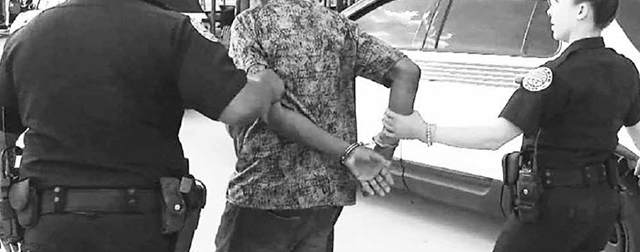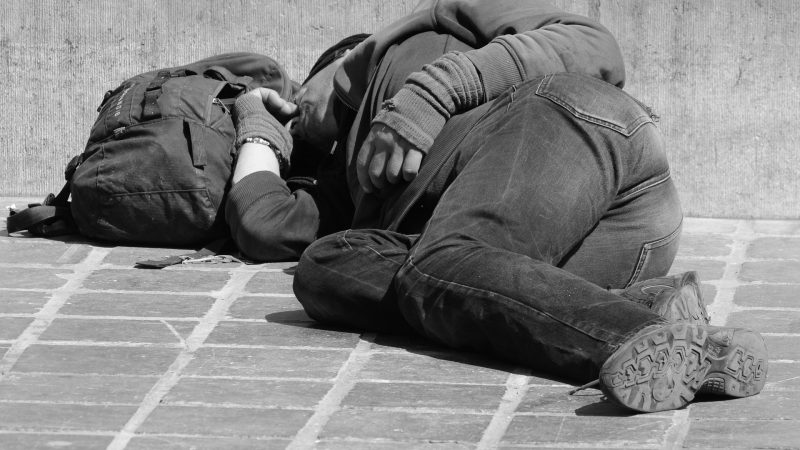Only a broken system locks up homeless people to keep them safe.
DAVID M. PERRY
As Hurricane Irma bore down on Miami, officials from the Miami-Dade County Homeless Trust fanned out into the city, accompanied by police and mental-health officials. In order to protect homeless individuals from the worst effects of the storm, the Homeless Trust had decided to use the Baker Act, a 1970s-era Florida law allowing for the involuntary commitment of people suspected of mental illness, to lock up any homeless people who wouldn’t voluntarily go to shelters. Ron Book, chairman of the Trust, told the Miami Herald: “I’m not going to be the mayor of Houston. I’m not going to tell people to take a Sharpie and write their names on their arm.” (It was actually the Mayor of Rockport who told non-evacuees to take this step so that their bodies could be identified.) Instead, Book asserted that anyone who was still on the streets must be mentally ill, and that he intended to “have all of them Baker-Acted.” A day later, homeless people were being cuffed and taken away, after psychiatrists working with the Trust stated that the decision to stay outside in the face of a hurricane merited incarceration.
All this might sound like reasonable policy. No one wants homeless people to die for want of shelter. Fred Friedman, however, has questions. Friedman is head organizer of Next Steps, an organization dedicated to ensuring that those with “lived experience of homelessness, mental illness, substance use, or addiction” drive all policy discussions about people with those experiences. Over the phone, he describes himself to me as a person who has experienced both homelessness and “active symptoms of mental illness” at various points in his life.
Friedman is concerned about homeless people in Miami. But he also knows that the risks don’t come only from the storm. “It’s scary,” he says, “when people make decisions that others don’t like, they define it as crazy. In this case, they lock them up without any due process.” He wonders, now that this precedent has been set, what other moments will justify trawling the streets of Miami to “Baker-Act” homeless residents.
Involuntarily Commit the Homeless During Hurricanes



